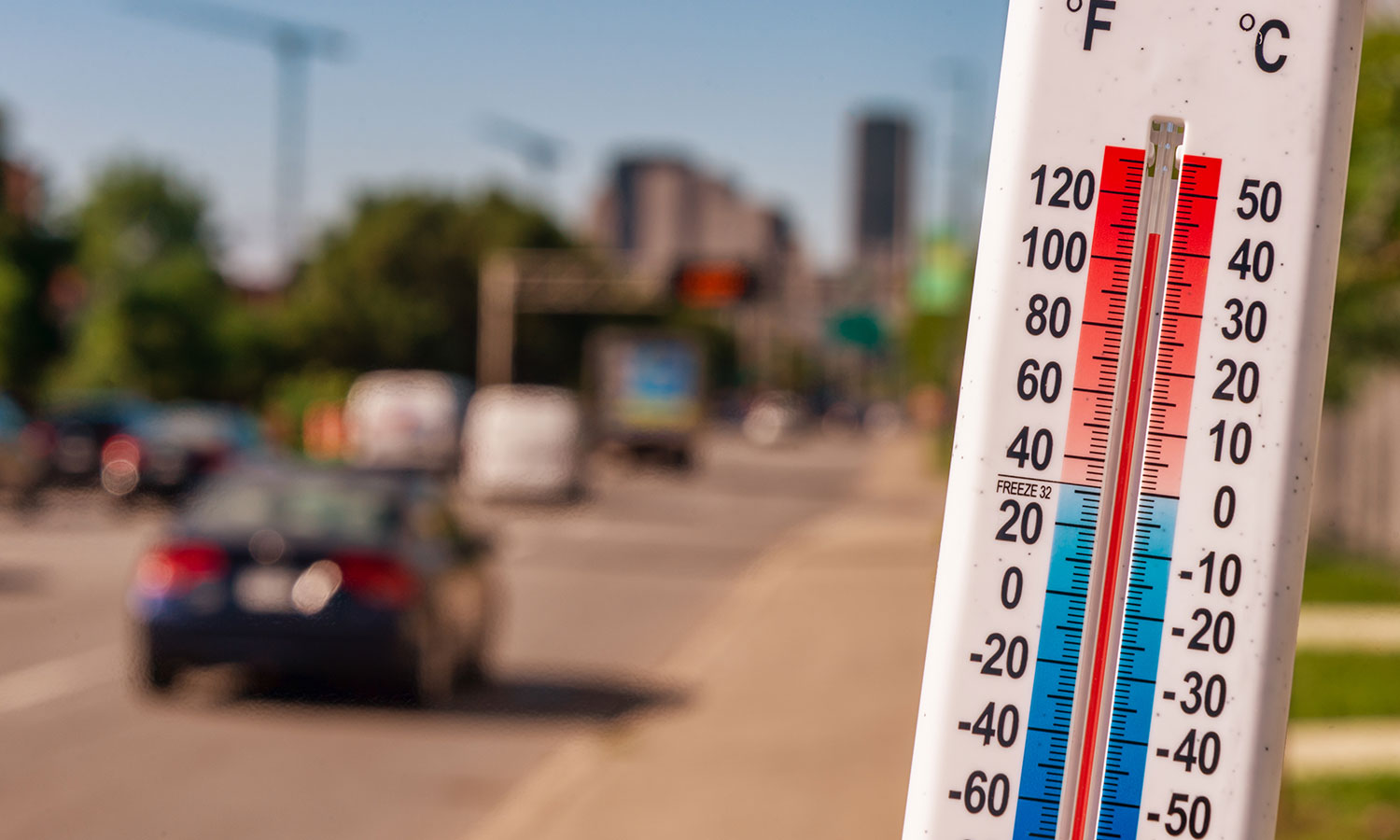Sensible Driving Tips for Extreme Heat
Blistering heat takes its toll on all of us, but did you know that it can impact your vehicle and driving experience, too? Although there tends to be more national press surrounding how extreme cold can affect a car, long-time Texans will tell you that our scorching summers may present challenges. But what can you do to prepare?

To help you navigate warmer weather, we’ve pulled together several driving tips for extreme heat, especially when traveling long distances.
Maintain your vehicle
Either on your own or in tandem with a professional mechanic who helps keep your car in working order, be sure to monitor the following before heading out on a long trip:
Belts and hoses
Scorching temperatures can cause damage to your belts and hoses, potentially leading to undesirable pauses in your travel or, worse, costly repairs.
Tire pressure
Remember your science classes from school? Heat causes air to expand. And if that’s happening inside your tires, then they’ll expand, too. Newer vehicles provide safety features that may alert you to a problem here, but on long rides (or if you have an older automobile), it pays to check your pressure now and then. (And don’t forget to check on your spare tire, too!)
Battery
No one wants to take off on a road trip only to find themselves stuck on the roadside with a bad battery. Have it tested before summer hits or when planning a long drive. Replacing it in advance of a problem may prove a lot cheaper than if you must call a tow truck later when your car breaks down.
Driving an electric car? High temps have the potential to reduce your battery’s charge. And it goes without saying that, if you’re taking a long trip on a hot day, you’ll want to map out recharging stations along your route.
Wiper blades
As the National Highway Traffic Safety Administration (NHTSA) notes,1 both winter storms and spring rains can take their toll on your wiper blades. Look for signs of wear and tear and consider replacing them in advance of a long trip.
Fluids
When sitting in your favorite ride with the air conditioner blasting and a big cold fountain drink or delicious iced coffee in the cupholder, it’s easy to forget that — just like you — your car relies on fluids to keep running smoothly.
Be sure to check the following fluids:
- Coolant
- Power-steering
- Windshield washer
- Brake
- Motor oil
- Transmission
» Tip: It might not be a bad idea to review your auto insurance policy, either. This can help ensure that your coverage reflects your current needs and budget.
Prepare for vehicle emergencies
No one wants to deal with an over-heating car, but if you see that temperature gauge rising above the halfway mark, snap off the air conditioning, lower your windows and let Mother Nature give your engine a rest.
Additional signs that your car is overheating include:
- The car smells hot.
- Thumping or ticking noises can be heard.
- There are signs of coolant (e.g., a puddle or a drip) on the ground beneath your car.
- Smoke or steam is coming out from underneath the hood, or the hood feels unusually hot to the touch.
- The engine seems to have less power.
Remember: Vehicle emergencies can occur on long trips or during your regular commute. Whatever your destination, it’s smart to be attentive to what’s going on with your car.
It’s also good practice to keep an emergency kit in your car.2 You never know when you might need:
- Tire repair equipment for flats
- Flares
- Flashlights
- A first aid kit
- Spare water and snacks
- Jumper cables
» Tip: Keep an eye on auto recalls, too! You can learn if a specific car is part of a recall by visiting the NHTSA website3 and putting in the vehicle identification number (VIN).
Take care of the people, too
When we first think of roadside emergencies, we do tend to think of problems with our automobiles. Yet the humans inside the car can suffer from extreme heat as well, especially after an abundance of outdoor activities or if they’re not drinking enough fluids.
When driving long distances, be sure to take time to rest. Light, refreshing snacks like juicy fruit served with water can help revive everyone — and perhaps prevent a heat stroke.
Keep phones charged and check for service regularly. Pack an emergency kit with bandages and wound care options. And don’t forget to check your surroundings in unfamiliar areas as summer travelers may attract criminal interest in your car and belongings. One common sense approach that can deter thieves? Keep valuables and money out of site when you’re not with your car.
Whether you’re traveling alone or in the company of friends or family, it’s smart to let someone know your travel plans and estimated time of arrival. In the event of an accident, this simple step could speed up assistance if you lose cellular service.
» Tip: The NHTSA reminds drivers4 to buckle up, use car seats and exercise caution when backing out and parking. Yes, these are year-round precautions, but in summertime’s excitement, it might be easy to forget.
The takeaway
Whatever your destination, it’s important to keep these smart, simple ways to stay safe in mind when driving in extreme heat.
Of course, it helps to have the auto insurance you need, too. RBFCU Insurance Agency can provide a policy review or you can request an online quote today.





.jpg?sfvrsn=b6afb2a8_4)